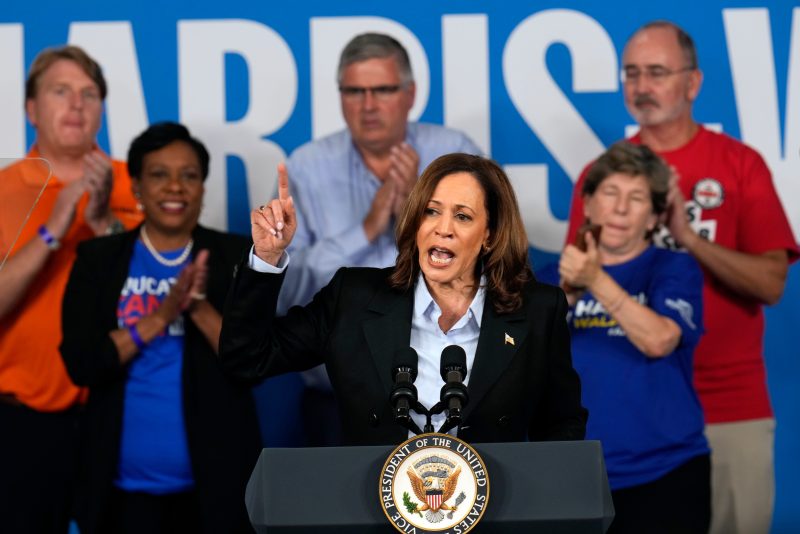In her recent pitch to union voters in the Blue Wall states, Vice President Kamala Harris emphasized key policies aimed at uplifting working-class Americans and strengthening labor rights. She highlighted the importance of union representation, fair wages, and job security in building a more equitable society.
One of the central themes of Harris’ address was the critical role that unions play in ensuring that workers have a voice in the workplace. By advocating for collective bargaining rights and stronger labor protections, she sought to empower workers to negotiate for better wages, benefits, and working conditions. Harris emphasized that union membership not only benefits individual workers but also helps to create a more balanced and prosperous economy for all.
Moreover, Harris put forth a vision for a future where all workers have access to good-paying jobs with opportunities for advancement. She stressed the need for investments in infrastructure, clean energy, and manufacturing to create sustainable employment opportunities for American workers. By prioritizing job creation and skills training programs, Harris aimed to revitalize communities and provide pathways to economic stability for all Americans.
In her pitch to union voters, Harris also addressed the pressing issue of income inequality and the need to level the playing field for working-class families. She proposed policies such as raising the minimum wage, expanding access to affordable healthcare, and ensuring paid family leave to support workers in achieving financial security and work-life balance. Harris sought to demonstrate her commitment to addressing the economic challenges faced by working-class Americans through concrete policy proposals that prioritize their well-being.
Furthermore, Harris emphasized the importance of protecting workers’ rights in an evolving economy marked by technological advancements and changing labor dynamics. She pledged to strengthen enforcement of labor laws, combat wage theft, and promote workplace safety to ensure that workers are treated fairly and with dignity. By addressing the challenges posed by the gig economy and precarious work arrangements, Harris underscored her commitment to advocating for the rights of all workers, regardless of their employment status.
Overall, Harris’ pitch to union voters in the Blue Wall states centered on promoting a pro-worker agenda that prioritizes fair wages, job security, and labor rights. By highlighting the value of union representation, advocating for economic policies that benefit working-class Americans, and addressing income inequality, Harris made a compelling case for her vision of a more inclusive and equitable society. As the debate around labor rights and economic justice continues to unfold, Harris’ message serves as a reminder of the importance of placing workers at the center of our efforts to build a more fair and prosperous future for all.


































